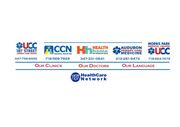
If you have a newborn, it’s likely you’ve had to deal with diaper rash. While this condition is common in infants, it’s crucial to know how to treat and prevent it, as well as when it’s necessary to see your family doctor. Here is some basic information about diaper rash.
What Is Diaper Rash?
Diaper rash is the term for the red, irritated skin that often appears on a baby’s bottom. It develops when wet and/or dirty diapers cause chafing and inflammation on a baby’s soft, sensitive skin. While babies of any age can get diaper rash, it’s especially common between the ages of nine and 12 months. It can also show up when a baby starts eating solid foods, as well as when you—if you are nursing—or your baby are taking antibiotics.
Symptoms of Diaper Rash
 The most obvious sign of diaper rash is the rash itself, which usually presents as bright red skin around the baby’s bum, thighs, and genitals. Also, look at your baby’s disposition. If they seem especially uncomfortable and fussy, and if they cry when the diaper area is touched, it’s likely that they are experiencing diaper rash.
The most obvious sign of diaper rash is the rash itself, which usually presents as bright red skin around the baby’s bum, thighs, and genitals. Also, look at your baby’s disposition. If they seem especially uncomfortable and fussy, and if they cry when the diaper area is touched, it’s likely that they are experiencing diaper rash.
How Is Diaper Rash Treated?
While diaper rash can sometimes look severe, it does not usually require a visit to your family doctor. Most of the time, it clears up pretty quickly with the help of creams, ointments, and adjustments in diaper-changing practices.
Make sure the area is clean and dry before putting on a fresh diaper, and check and change the diaper frequently. If the rash doesn’t clear up within two to three days, or if you notice yellowish, fluid-filled bumps and/or white scales and lesions, have it looked it. If it’s a bacterial infection or yeast infection, your family doctor will prescribe medicine to clear it up.
For more information about diaper rash and other infant skin conditions, contact the caring family doctors at HDR Healthcare Network. Offering locations throughout Upper Manhattan and the West Bronx, they will help take care of all of your pediatric needs. They also provide urgent care, primary care, and health education. Call (929) 256-5005 to learn more about how they can help you and your family today.
About the Business
Have a question? Ask the experts!
Send your question

